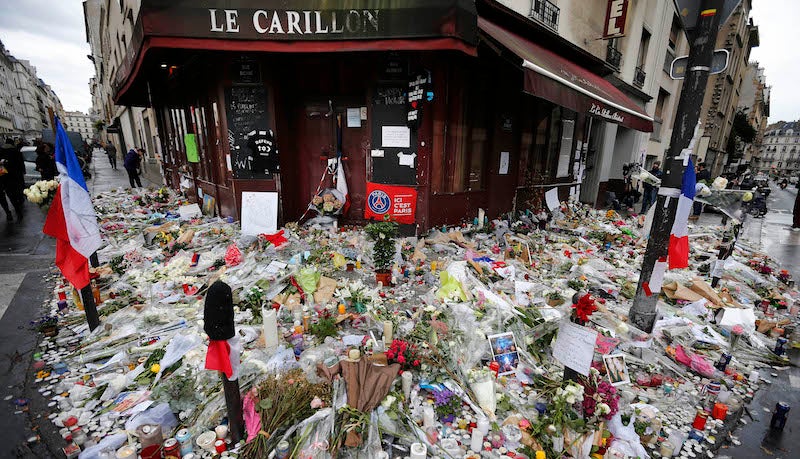Incompetence Aided by Impotence
"We always see in hindsight that people were known or followed."
"Such things happen. In hindsight it is easy to say, but with the numbers that have to be followed, it’s impossible to watch them all."
Guy Van Vlierden, Belgian journalist
 |
| Belgian police stage a raid in Molenbeek in search of suspected Muslim fundamentalists involved in the Paris attacks -- Photo Yves Herman/Reuters |
There was a time when it was bruited about that France has gifted Islamic State with more recruits to violent jihad than any other European country, but now it seems that it is Belgium that is outstanding for that distinguishing position, per population base. Belgian also, it seems, has a background of 'relaxed' gun laws, and authorities are further hampered by layers of government authority that intersect and overlap. Belgian police, it transpires, were suspicious of the men involved in the Paris attacks.
Researchers as well as journalists were aware of their activities, and followed their posts on social media; a clear giveaway identifying their sympathies and a red flag respecting the potential for them to act on them. Three men linked to the Paris atrocities had their names appear on a list of 800 Belgian citizens with suspected ties to terrorist groups. That list compiled and maintained by the Belgian Coordination Unit for Threat Assessment, a government advisory group.
France also has a very similar list, and on their list appears 1,200 names. As for the comforting word "coordination" in the title of the unit, it's an element that appears to have been conspicuously lacking. And part of that could perhaps be attributed to the unfortunate fact that Belgian security services experience a lack of adequate numbers of staff to be tasked with following those suspected of being extremists. And nor are there sufficient numbers of Arabic speakers.

Moroccan-Belgian journalist Hind Fraihi ten years ago produced a five-part series on life in Molenbeek titled "Life in Little Morocco". She forewarned authorities that "there is a whole generation waiting to participate in these actions" such as those carried out by the Islamic State-linked extremists that assaulted and bloodied Paris last month. Her investigations preliminary to producing her series came complete with finding books preaching jihad that she bought from open book vendors.
Printed in Amsterdam, the material had been written in Saudi Arabia. The books took great pains as a religious authority to advise readers to take revenge on nonbelievers, irrrespective of whether they were Muslim or non-Muslim. The publications advised that European parliament had a hollow authority; only Allah’s law is sovereign.The books also advised recruits to jihad how best to comport themselves, and to keep below the radar of detection.
Now it seems additional issues have come to light, that Belgian security services had been hampered by a Belgian law that restrains police from entering suspected premises between 9 p.m. and 5. a.m.
They were in possession of rumours that Salah Abdeslam for whom an intensive manhunt was launched as a signal figure in the November 12 Paris attacks that killed 130 people was in a house in Molenbeek.
While his brother blew himself up outside the Paris sport stadium, Salah, disposed of his explosives vest, managed to escape detection, instructing friends to drive through the night, to pick him up on the outskirts of Paris, to return him to Belgium. The next day a routine road check stopped the car bringing him back to Belgium; he was identified, but police simply waved the car on. Brussels was later placed on maximum alert, fearing an "imminent" terror attack.
Koen Geens, Belgium's justice minister, informed a journalist that Abdeslam was in all likelihood taking shelter in a Molenbeek apartment "two days after the Paris attacks". Unfortunately, because of the country's penal code, police raids are forbidden between nine in the evening and five in the morning, if no crime is in the process of being committed. By the time five in the morning rolled around, he had vanished.
"We came up against the limitations of the law", explained Mr. Geens, an unfortunate "handicap".
The mind reels.
Labels: Atrocities, Belgium, Islamism, Paris, Security, Terrorism

<< Home